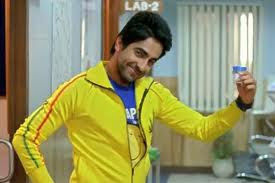I know my system quite well. A good night’s sleep and a glass of lukewarm water, is all I need to take a satisfying dump every morning. This activity is very different for different people. Some go to the toilet at any time of the day when the pressure is right and do their business like it’s no big deal. Some have a set pattern like the way I have. And for some, it is an insanely tough task. Tough to the extent that their entire energy in life is directed towards the amount of stool they push themselves to purge. They seldom feel the euphoria that arises after taking an adequate unload.
My mother (Maani) falls in this category. She has been suffering from constipation for the past one year. We are fortunate that it’s not a chronic one for her, but I know the distress she undergoes every single day for this one chore alone. The preparation for this starts from a night before, as she dutifully drinks a glass of warm milk with Isabgol, in all anticipation that she will be able to relieve herself well in time the next day. Sometimes, it works wonders. Sometimes, it does not. The times when it does not, we all realize it without her shouting it aloud. She tends to become a little sluggish and cranky. We just have to see her face to make out whether or not she had it easy that day. And, the times when it is effortless for her, we all revel in celebration. After all – ‘Insaan ka emotion uske motion se judha hua he!’ We know that better. Seriously!
Shoojit Sircar’s Piku is such a heartwarming real film. The fact that a little chat about bowel movement at the dinner table is not looked down upon as an awkward situation, shows the genuineness of this lovely narrative. I love every bit of this movie. Most importantly - the brilliant writing! Much like Vicky Donor, this one too has a well-shielded script that never becomes a stinky pile of shit, even though that’s the central theme of Piku.
The second most impressive aspect of Piku is Bhaskor Banerjee’s standpoint about his daughter’s marriage. He doesn’t seem to lose his sleep over Piku’s single status; rather he believes that –‘marriage without purpose is a low IQ decision.’ He is not against marriage but wants her to find out a good enough reason to settle down. And for him, Piku’s marriageable age isn’t a compelling one. What a progressive thought that is!
I don’t have the exact stats, but it is a known fact that most Bengali women tend to get married late in life. These women could be single, but lead an intensely happy and independent life. Just look out on purpose and you are bound to discover this lot of Bengali women around you. I, maybe, a case in point too :-)
Piku took me through an emotional whirlwind. Different kinds of emotions emerged, one after the other. In fact, rarely does it happen that I feel for all the characters in a movie. Piku is special in that sense.
But I still have 2 points to make. Not that these would have made this already beautiful film a notch better, but they did cross my mind.
First - I thought the interval sequence was a smart insertion, but not the cut. Would it not have been better to cut the scene when Piku and her father found the knife and were figuring out why it was there, rather than to elongate it up to the point where there is a spat between Bhaskor and Rana over the knife – and Bhaskor throws a fit and sits on the road with his suitcase and demands the knife to be thrown out? Somehow for me, it lost whatever bit of suspense, it was intended to interleave. I never felt the need to judge Rana’s character after that entire sequence.
Second - I wish I did not have to cry when Bhaskor died. The movie must have served its purpose, but I so wanted him to take another cycle/rickshaw ride to discover the unexplored bylanes of Kolkata. This, again, without keeping Piku and the rest of the family members informed about his jaunt!
I wanted to see more of him and his antics. I wanted him to do anything interesting, except for never waking up from the bed - especially after taking a fairly satisfying dump of his life! Why couldn’t we see him eating and enjoying stuff that a regular bhadrolok does in Kolkata? (There is a lot more in Kolkata than just the roadside Kachoris!) We could have even liked seeing him play a football match with his old friends. Wouldn’t that have made it even more real?
Thankfully, there was absolutely no drama over his death. It was different from other death sequences that we have seen in films so far. But, I wish, some day Bollywood films move over the myriad adversities of life. In particular, those films where it looks more like a forced placing than the real flow of events.
On one hand, I say I love the movie and on the other, I have 2 important points that are critical of it. That’s fine. This thought was jammed up right there and I had to let go of it today.
P.S.
Please don’t look that constipated. You can release your emotions too!






